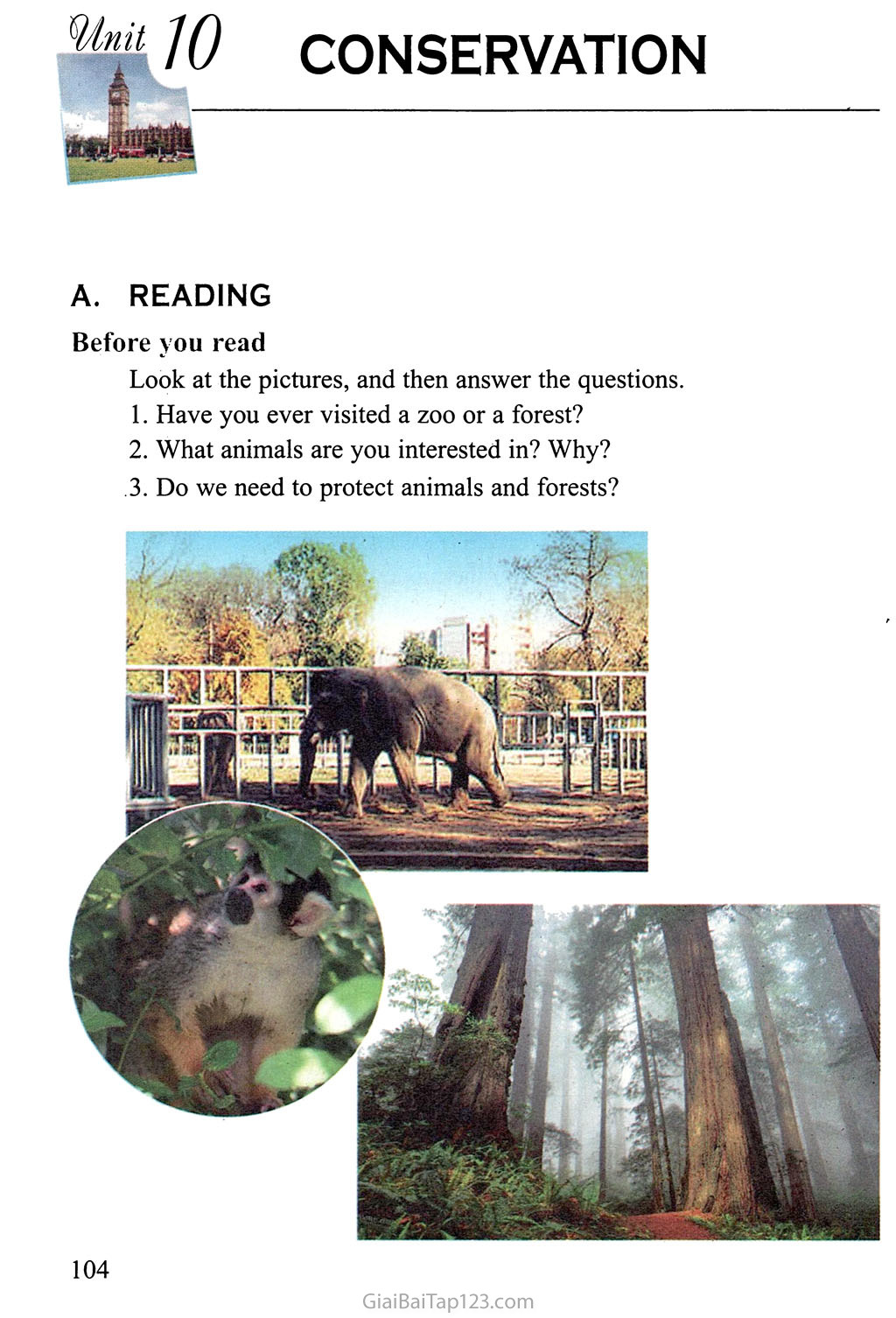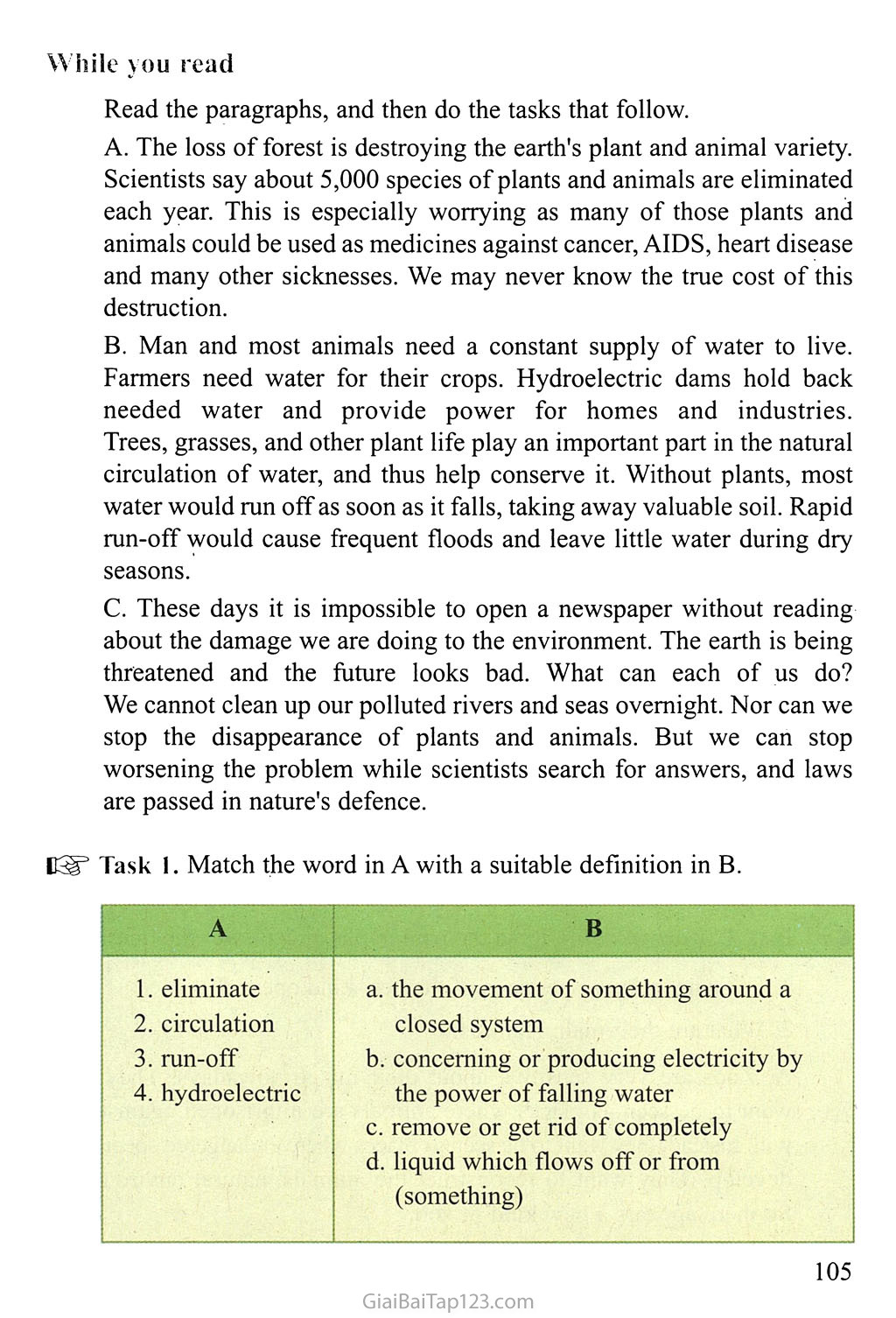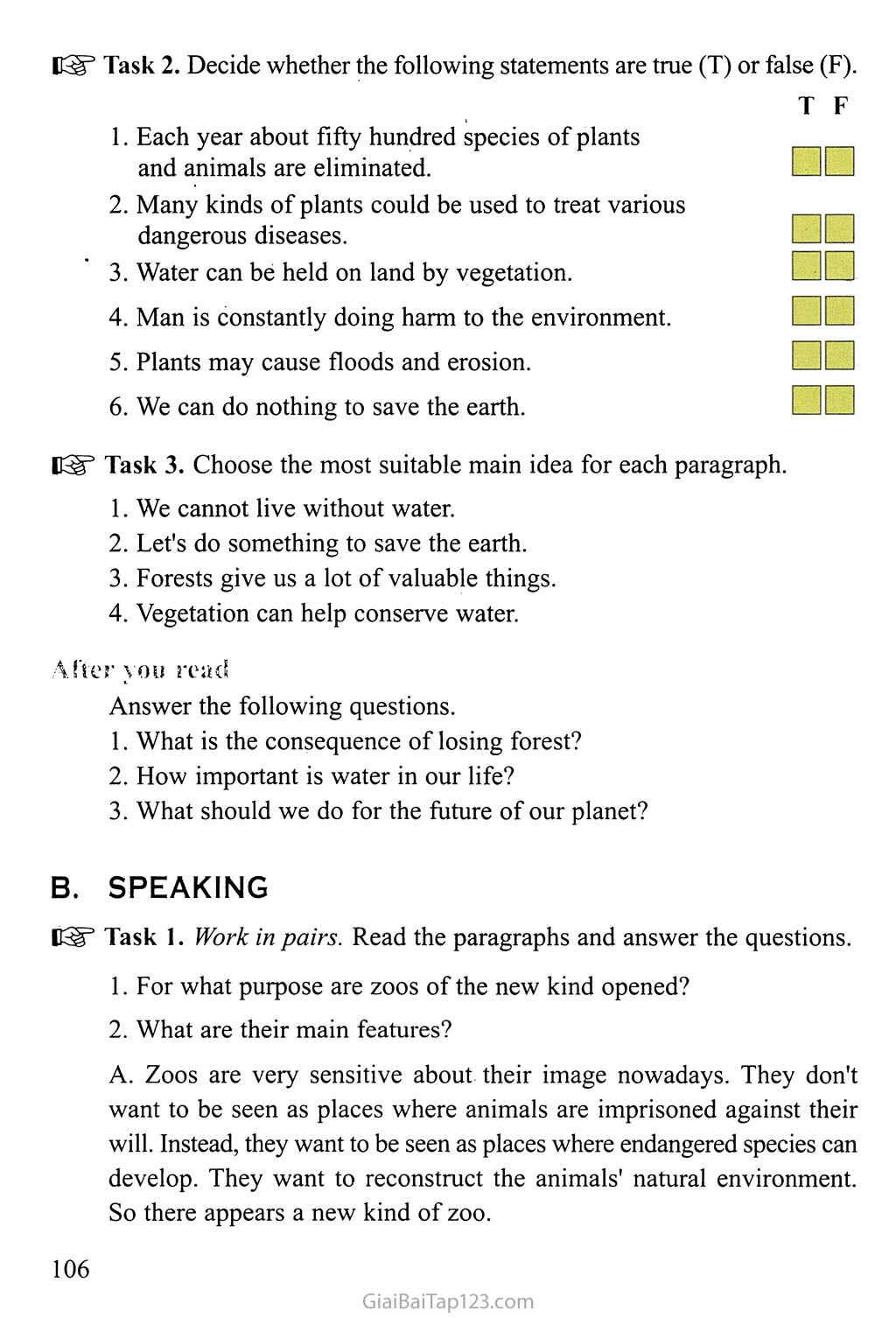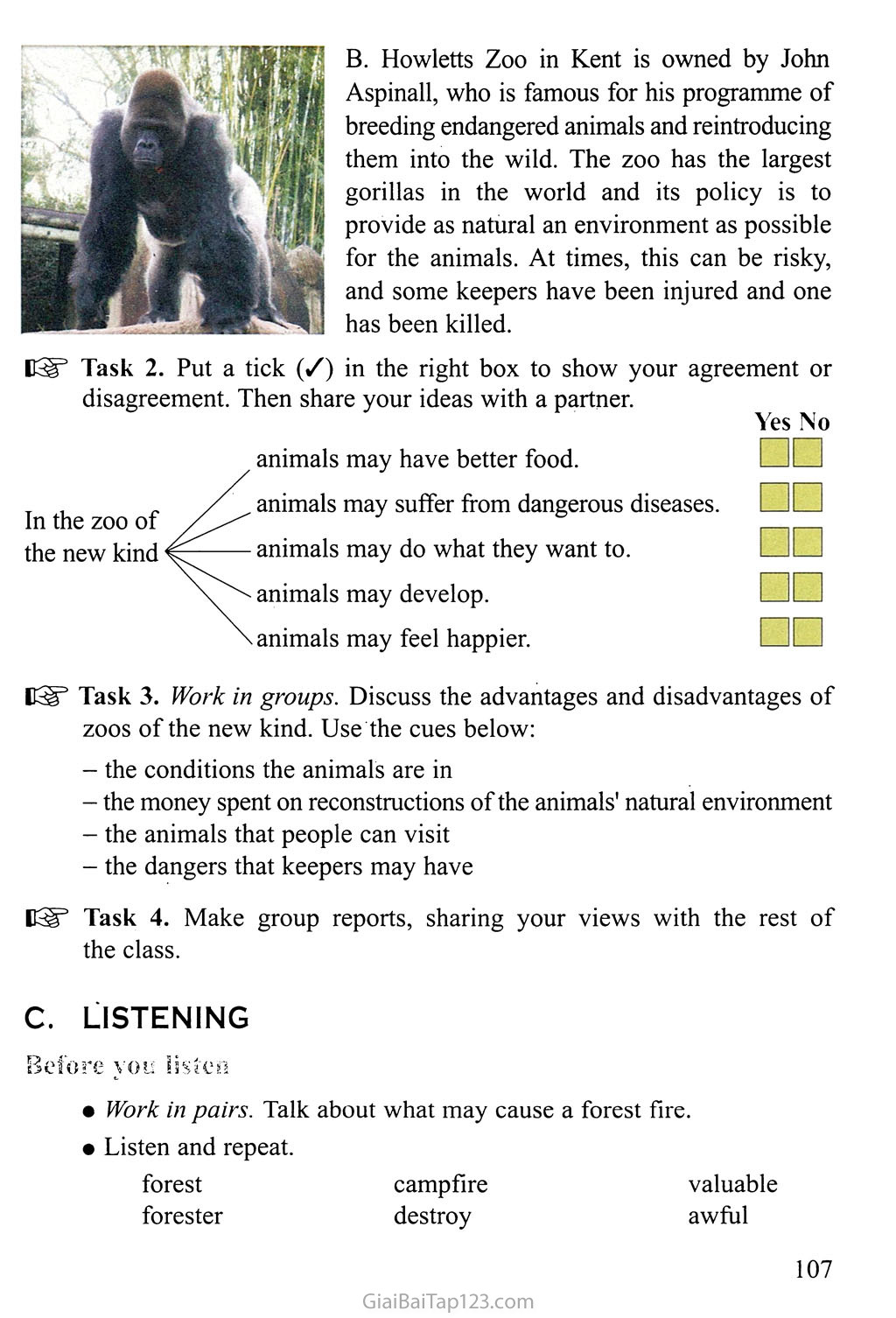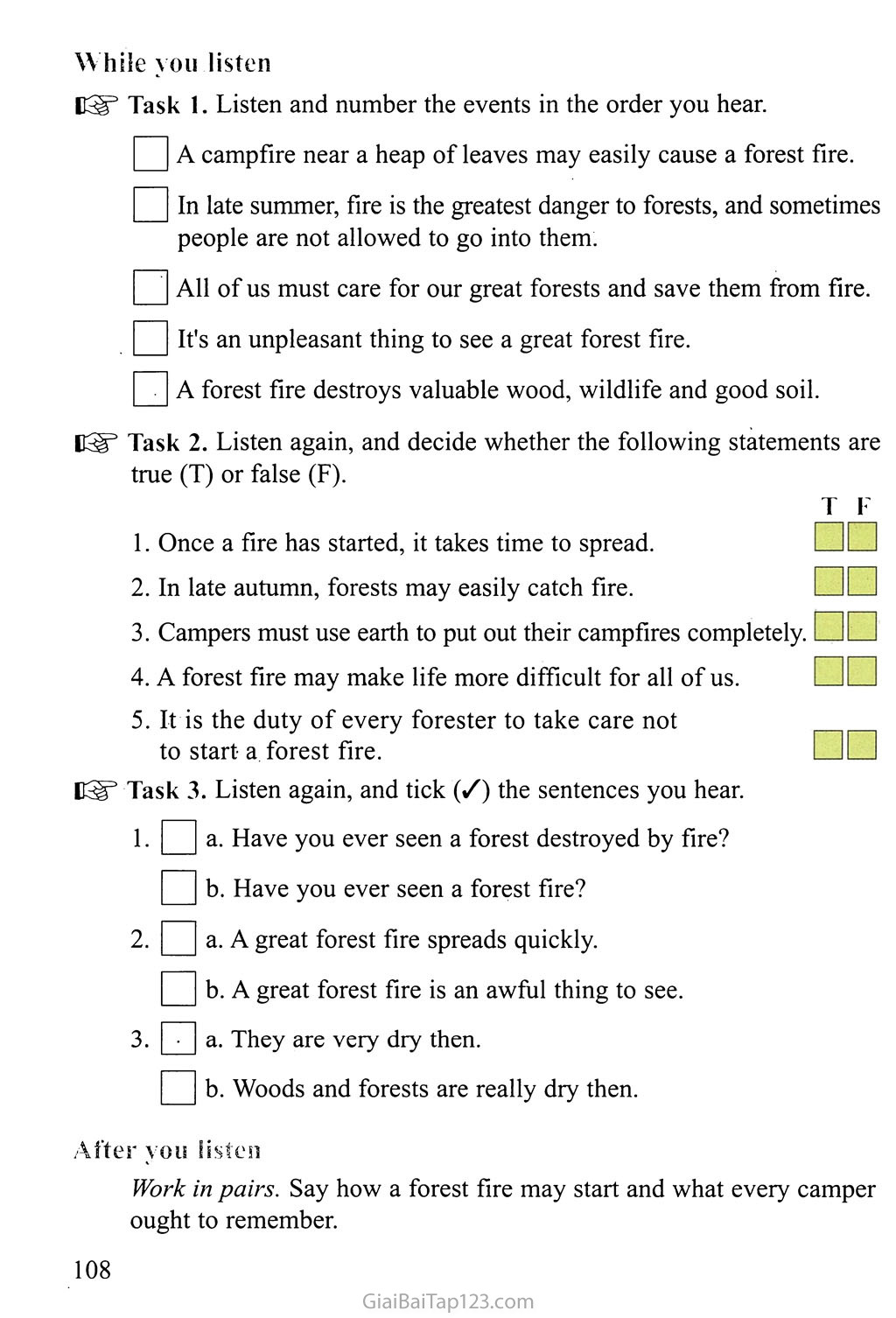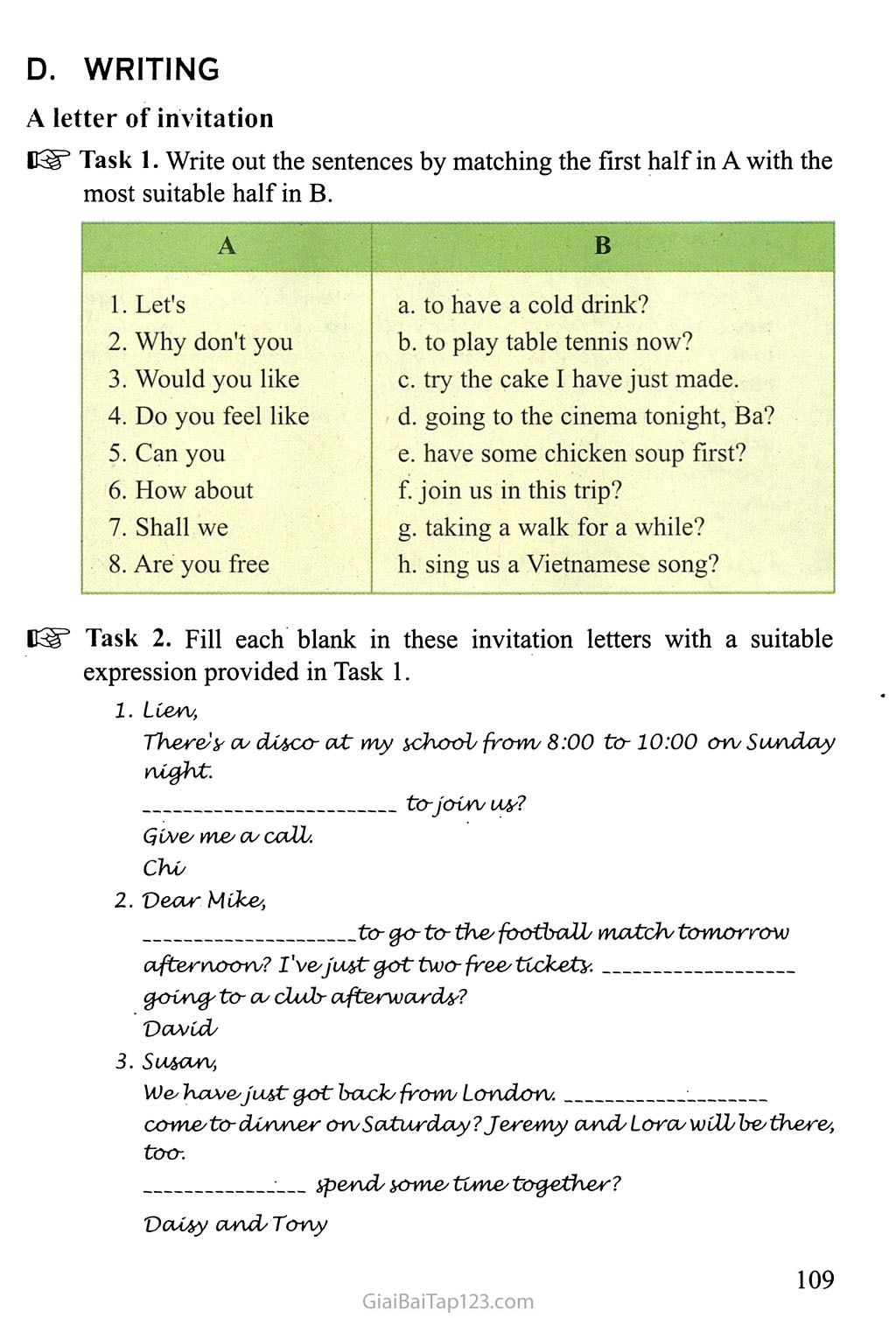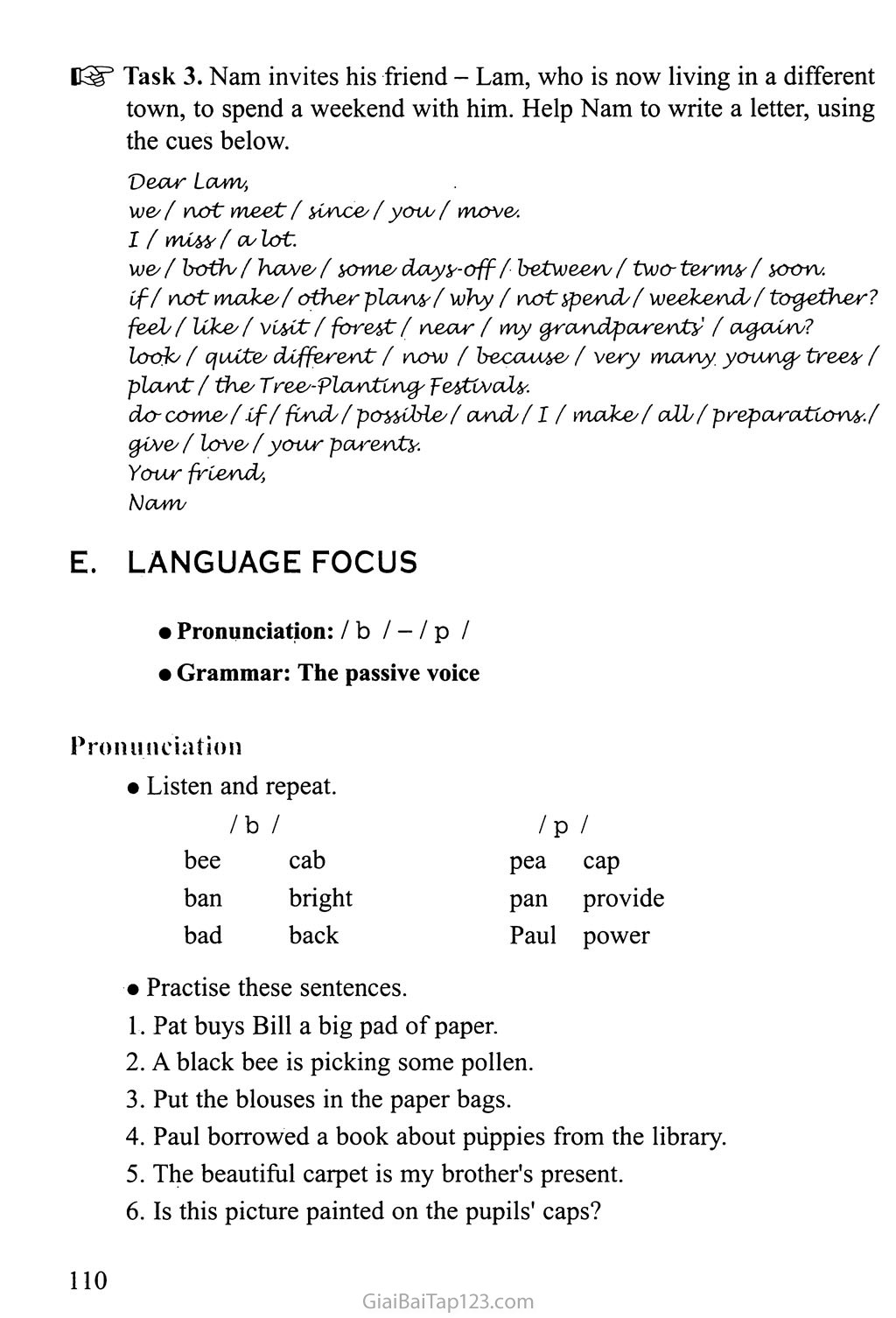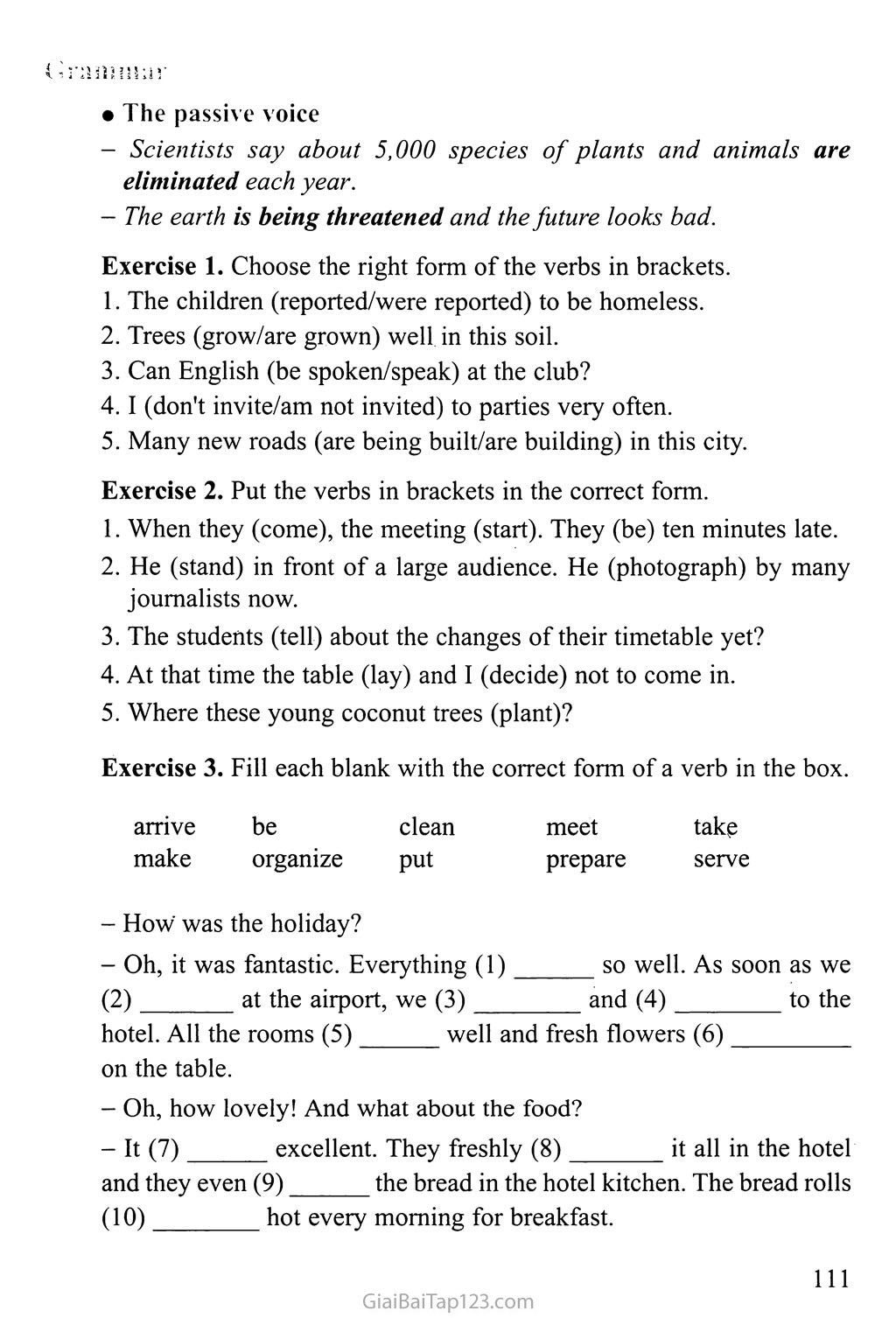SGK Tiếng Anh 10 - Unit 10: CONSERVATION
CONSERVATION A. READING Before you read Look at the pictures, and then answer the questions. Have you ever visited a zoo or a forest? What animals are you interested in? Why? Do we need to protect animals and forests? 1«! •u» 1 I.. * J While you read Read the paragraphs, and then do the tasks that follow. The loss of forest is destroying the earth's plant and animal variety. Scientists say about 5,000 species of plants and animals are eliminated each year. This is especially worrying as many of those plants and animals could be used as medicines against cancer, AIDS, heart disease and many other sicknesses. We may never know the true cost of this destruction. Man and most animals need a constant supply of water to live. Farmers need water for their crops. Hydroelectric dams hold back needed water and provide power for homes and industries. Trees, grasses, and other plant life play an important part in the natural circulation of water, and thus help conserve it. Without plants, most water would run off as soon as it falls, taking away valuable soil. Rapid run-off would cause frequent floods and leave little water during dry seasons. c. These days it is impossible to open a newspaper without reading about the damage we are doing to the environment. The earth is being threatened and the future looks bad. What can each of US do? We cannot clean up our polluted rivers and seas overnight. Nor can we stop the disappearance of plants and animals. But we can stop worsening the problem while scientists search for answers, and laws are passed in nature's defence. IW Task 1. Match the word in A with a suitable definition in B. A B eliminate circulation run-off hydroelectric the movement of something around a closed system concerning or producing electricity by the power of falling water remove or get rid of completely liquid which flows off or from (something) Eáir Task 2. Decide whether the following statements are true (T) or false (F). T F Each year about fifty hundred species of plants KẫT Task 3. Choose the most suitable main idea for each paragraph. We cannot live without water. Let's do something to save the earth. Forests give US a lot of valuable things. Vegetation can help conserve water. After you read Answer the following questions. What is the consequence of losing forest? How important is water in our life? What should we do for the future of our planet? B. SPEAKING CSV Task 1. Work in pairs. Read the paragraphs and answer the questions. For what purpose are zoos of the new kind opened? What are their main features? A. Zoos are very sensitive about their image nowadays. They don't want to be seen as places where animals are imprisoned against their will. Instead, they want to be seen as places where endangered species can develop. They want to reconstruct the animals' natural environment. So there appears a new kind of zoo. B. Howletts Zoo in Kent is owned by John Aspinall, who is famous for his programme of breeding endangered animals and reintroducing them into the wild. The zoo has the largest gorillas in the world and its policy is to provide as natural an environment as possible for the animals. At times, this can be risky, and some keepers have been injured and one has been killed. mif Task 2. Put a tick (/) in the right box to show your agreement or disagreement. Then share your ideas with a partner. Yes No animals may have better food. DD T , - / ' animals may suffer from dangerous diseases. DD In the zoo ot .—..—, the new kind C7- animals may do what they want to. I II I animals may develop. DD \ animals may feel happier. DD CST Task 3. Work in groups. Discuss the advantages and disadvantages of zoos of the new kind. Use the cues below: the conditions the animals are in the money spent on reconstructions of the animals' natural environment the animals that people can visit the dangers that keepers may have ESsf Task 4. Make group reports, sharing your views with the rest of the class. c. LISTENING Before you listen Work in pairs. Talk about what may cause a forest fire. Listen and repeat. forest campfire valuable forester destroy awful While you listen Ifllf Task 1. Listen and number the events in the order you hear. A campfire near a heap of leaves may easily cause a forest fire. ] In late summer, fire is the greatest danger to forests, and sometimes people are not allowed to go into them. All of us must care for our great forests and save them from fire, □if s an unpleasant thing to see a great forest fire. ~| A forest fire destroys valuable wood, wildlife and good soil. Cdlf Task 2. Listen again, and decide whether the following statements are true (T) or false (F). T F Once a fire has started, it takes time to spread. In late autumn, forests may easily catch fire. Campers must use earth to put out their campfires completely. A forest fire may make life more difficult for all of US. It is the duty of every forester to take care not to start a forest fire. BBT Task 3. Listen again, and tick (Z) the sentences you hear. I I a. Have you ever seen a forest destroyed by fire? ] b. Have you ever seen a forest fire? I I a. A great forest fire spreads quickly. ] b. A great forest fire is an awful thing to see. Ị—] a. They are very dry then. ] b. Woods and forests are really dry then. After you listen Work in pairs. Say how a forest fire may start and what every camper ought to remember. D. WRITING A letter of invitation Task 1. Write out the sentences by matching the first half in A with the most suitable half in B. A ' Let's Why don't you Would you like Do you feel like Can you How about Shall we Are you free to have a cold drink? to play table tennis now? try the cake I have just made. going to the cinema tonight, Ba? have some chicken soup first? join us in this trip? taking a walk for a while? sing us a Vietnamese song? KẫC Task 2. Fill each blank in these invitation letters with a suitable expression provided in Task 1. LCerc, There? y cv dÁsơơ at my Ỉrchơơỉ/ ffơm 8:00 tơ-10:00 orv Sunday vúyịht. tơ jơín/ us? <5 íve/ mơ 6V caU/. chú Vơar Míkơ, ; tơ gơ- tơ thơ fơơtbaU/ match/ tơmơrrcơv ơftơ'ơơơvv? Ihơjuytặơt two-free/tickets. ặơímty tơ a/ club- afterwards? VasCd/ Susan/, Wơ hasơjust ặơt batk/ frơm Lỡvxdơn/. cơmơ tơ-dinner ov\/Saturday? Jeremy and/ Lơra/WíẰb'bơtherơ, tơơ-. ẲpenrLxune/tíme-ứogteíHe^-'? Daisy amd/Tơny (Gif' Task 3. Nam invites his friend - Lam, who is now living in a different town, to spend a weekend with him. Help Nam to write a letter, using the cues below. Dear lam, we / not meet / MO</you/ / move. I f miss f a/lot. we / both/ / have f ww days-ofp / between / two ter mv/ soon, úp/ not make/other plans/ why / not spend// weekend//together? peek / like/ Í visit / porest / near / my grandparent/ / agpún? look / qukte dtpperent / now í became / very many, young/ trees / plant / the Tree-Plantíng/ festivals do come/Lp/pínd//possible/and//1 / make/all/preparations./ give / love / your parents. Your friend/, Mam/ E. LANGUAGE FOCUS Pronunciation: / b / - / p / Grammar: The passive voice Pronunciation Listen and repeat. /b / /p / bee cab pea cap ban bright pan provide bad back Paul power • Practise these sentences. Pat buys Bill a big pad of paper. A black bee is picking some pollen. Put the blouses in the paper bags. Paul borrowed a book about puppies from the library. The beautiful carpet is my brother's present. Is this picture painted on the pupils' caps? Grammar • The passive voice Scientists say about 5,000 species of plants and animals are eliminated each year. The earth is being threatened and the future looks bad. Exercise 1. Choose the right form of the verbs in brackets. The children (reported/were reported) to be homeless. Trees (grow/are grown) well in this soil. Can English (be spoken/speak) at the club? 4.1 (don't invite/am not invited) to parties very often. Many new roads (are being built/are building) in this city. Exercise 2. Put the verbs in brackets in the correct form. When they (come), the meeting (start). They (be) ten minutes late. He (stand) in front of a large audience. He (photograph) by many journalists now. The students (tell) about the changes of their timetable yet? At that time the table (lay) and I (decide) not to come in. Where these young coconut trees (plant)? Exercise 3. Fill each blank with the correct form of a verb in the box. arrive be clean meet take make organize put prepare serve How was the holiday? Oh, it was fantastic. Everything (1) so well. As soon as we (2) at the airport, we (3) and (4) to the hotel. All the rooms (5) well and fresh flowers (6) on the table. Oh, how lovely! And what about the food? It (7) excellent. They freshly (8) it all in the hotel and they even (9) the bread in the hotel kitchen. The bread rolls (10) hot every morning for breakfast.

